Download SB1204 C7 Inlet Manifold
Transcript
1(4) SAFETY BULLETIN SB1204 October 26, 2012 TOPIC: OVER TENSIONING OF INLET MANIFOLD FASTENERS LEADING TO GASKET FAILURE APPLICABLE TO: ALL SANDVIK CAT C7 ACERT EXPLOSION PROTECTED DIESEL ENGINE SYSTEMS SANDVIK LS171, LS191 LOADERS The Owner of machinery has a liability to inform and when necessary to train according to the content of this Bulletin all the personnel (like operators, maintenance personnel) whom this Bulletin concerns. BULLETIN NUMBER: SB1204 Possible occurrence of topic: Market area: Transport Maintenance Operation Tramming Spare parts Others: South Africa Australia, New Zealand EU Canada, USA Supplementary safety information including new hazard(s) identified how to avoid the hazard(s) and the potential consequences of not avoiding the hazard: DANGER Over tensioning of the Inlet Manifold fasteners can lead to crush of the gasket at the corner and may jeopardise the flameproof integrity of the inlet system. © 2012 SANDVIK MINING AND CONSTRUCTION AUSTRALIA PTY LTD 431 Masonite Road ABN: 62 003 771 382 Heatherbrae NSW 2324, AUSTRALIA Issued Bulletins are available on the Sandvik website www.sandvik.com at: www.miningandconstruction.sandvik.com/au This document shall be incorporated in the "information of use" documentation and kept there for the life of the product. Unless otherwise specified, Sandvik accepts no responsibility for changes, labour or replacements incurred from this bulletin. SAFETY BULLETIN 2(4) SB1204 October 26, 2012 Background information: The Engineering Department responsible for Load & Haul Products continues to undertake work to improve documentation used for component assessments, Code D Overhauls Explosion Protected Diesel Engine Systems. During the course of this exercise, the inlet manifold of the CAT C7 Engine was machined to minimum tolerances and pressure tested with test backing plates fitted and gaskets and fasteners as nominated on the Diesel Engine System Drawing Registered with NSW Department of Trade and Investment. A problem was discovered when tensioning the corner fasteners to the maximum tolerance. Due to the lack of stiffness in the Inlet Manifold, the gasket is crushed locally at the corners. The same lack of stiffness prevents proper sealing of the fixed joint at the end of the manifold. This would not normally be noticed when neoprene rubber is used for Pressure Testing, due to the added flexibility and sealing properties of the neoprene test gasket. Further testing resolved the issue by using an additional support plate to spread the load of the fasteners. All C7 engines already have a Fuel Filter Bracket on one end which adequately performs this function. The testing also showed that as little as 1.5mm of gasket width adjacent to the bolt hole is sufficient to contain the full pressure of 1000kPa of the pressure test. Figure 1 shows an extreme example of crushing as witnessed during the testing after a number of tests. Figure 2 shows a damaged gasket. Note the outer edges are damaged and the inner edges are intact. Figure 1 Figure 2 Notes: 1. Pressure determination testing to AS3584.2:2008 on the intake system found the maximum pressure to be 68.1kPa. Hydrostatic pressure testing of the Inlet System is therefore determined to be the greater of 1.5x68.1kPa (102.2kPa) or 350kPa. The test pressure nominated as 1000kPa for the Inlet System was due to market area requirements for South Africa. 2. Turbo boost pressure at torque stall is approx 150kPa. ie Approx 2.2 times Pressure Determination test value. There have been no cases of Inlet Manifold cracking or Gasket Failure reported to Sandvik from the field. © 2012 SANDVIK MINING AND CONSTRUCTION AUSTRALIA PTY LTD 431 Masonite Road ABN: 62 003 771 382 Heatherbrae NSW 2324, AUSTRALIA Issued Bulletins are available on the Sandvik website www.sandvik.com at: www.miningandconstruction.sandvik.com/au This document shall be incorporated in the "information of use" documentation and kept there for the life of the product. Unless otherwise specified, Sandvik accepts no responsibility for changes, labour or replacements incurred from this bulletin. 3(4) SAFETY BULLETIN SB1204 October 26, 2012 Actions to be taken immediately: • Review all Attached documents and follow the recommendations. RECOMMENDATIONS • Inspect the Inlet Manifold and gasket edges at the corners (Radiator end). • The inspection must include; • 1. A visual inspection for extrusion of the gasket from between the faces of the Inlet Manifold (BD00009952) and Cylinder Head. 2. A visual inspection for cracking of the Inlet Manifold at the corners nearest the radiator. (NB. Possible where severe extrusion of the Gasket has occurred). 3. A soapy water test around the radiator end of Inlet Manifold conducted at torque stall. (Note: The vehicle must be in a non-explosive gas environment at the time of this test.) Based on this inspection, the following options may be implemented; 1. If the manifold is not cracked and the gasket appears not to have been extruded from the joint; Fit the additional support bracket (1 x BU00000853) and Fasteners (4 x BU00000993) (see attachments) and replace the Fasteners (4 x BU00000993) at the Fuel Filter Bracket end without the removal of the inlet manifold. A full description to remove and install the Inlet Manifold is provided in the attachments. A portion of this procedure may be used for the fitting of the support bracket and fasteners. Once complete, perform soapy water test (refer Inspection Step 3) around the Inlet Manifold to Cylinder Head (Fixed Joint 3) with the engine at Torque Stall to detect leaks. If leaks occur, proceed to option 2. OR 2. If the manifold is cracked and/or the gasket appears to have extruded from the joint; Following the Service Manual information provided, remove the Inlet Manifold and Inlet System components. Perform a dimensional check and pressure test (Code D) inspection of the Inlet Manifold using critical details noted on pages 1 & 4 of drawings A2U900-830879, Rev B [1] or BD00020101, Rev B [2]. Note: At Dimension 3.3, the minimum allowable dimension is 1.5mm. Reinstall the Inlet system including the additional support bracket, fasteners and new gaskets shown in “Inlet Manifold Kit – BU00001018”. All work should be supervised by a responsible person and in accordance with Code D requirements. Once complete, perform soapy water test (refer Inspection Step 3) © 2012 SANDVIK MINING AND CONSTRUCTION AUSTRALIA PTY LTD 431 Masonite Road ABN: 62 003 771 382 Heatherbrae NSW 2324, AUSTRALIA Issued Bulletins are available on the Sandvik website www.sandvik.com at: www.miningandconstruction.sandvik.com/au This document shall be incorporated in the "information of use" documentation and kept there for the life of the product. Unless otherwise specified, Sandvik accepts no responsibility for changes, labour or replacements incurred from this bulletin. 4(4) SAFETY BULLETIN SB1204 October 26, 2012 IMPORTANT NOTES: Disregard the intake system fastener torque settings on the relevant Registration drawings [1], [2]. Instead use the fastener torques nominated in the “Service Manual – Inlet Manifold Installation Procedure for CAT C7 Engine” and “Flametrap Housing Group - A2U900-240102”. It is Sandvik’s intention to apply for supplementary changes to DES Registrations to the respective statutory authorities. Ensure a copy of this bulletin and attachments is stored with the Plant Safety Documentation for the machine. Reference documents: [1] Registration Drawing, CAT C7 ACERT, A2U900-830879 Rev B (Australia) [2] Registration Drawing, CAT C7 ACERT, BD00020101 Rev B (South Africa) List of attachments: Drawing No. Title Model Service Manual, CAT C7 Engine, Inlet Manifold LS171 & LS191 Installation Procedure for CAT C7. BU00001018 Inlet Manifold Kit, Flametrap Housing Group LS171 & LS191 Flametrap Housing Group, Engine Cradle Group LS171 & LS191 Rev A A2U900—240102 Rev E Note: The latest revisions of the above drawings are issued at the time of writing. Request for Feedback: For mines, hirers or maintenance contractors that have implemented all of the above recommendations, Sandvik is interested to hear from you. Please contact your Sandvik representative to discuss any difficulties or to simply provide feedback on the condition of the Inlet Manifold and Gasket as you found it. Approved by: Product Line Manager – Terry Marler Appendixes: N/A © 2012 SANDVIK MINING AND CONSTRUCTION AUSTRALIA PTY LTD 431 Masonite Road ABN: 62 003 771 382 Heatherbrae NSW 2324, AUSTRALIA Issued Bulletins are available on the Sandvik website www.sandvik.com at: www.miningandconstruction.sandvik.com/au This document shall be incorporated in the "information of use" documentation and kept there for the life of the product. Unless otherwise specified, Sandvik accepts no responsibility for changes, labour or replacements incurred from this bulletin. SERVICE MANUAL CAT C7 ENGINE Inlet Manifold Installation Procedure for CAT C7 Engine Rev.4 CAT C7 MAINTENANCE MANUAL CAT C7 ENGINE Inlet Manifold Installation Procedure for Cat C7 Engine NOTICE Read ENTIRE document before commencing job. The inlet manifold is an integral part of the Explosion Protected C7 Diesel Engine System (DES). Ensuring the correct installation of the inlet manifold will ensure the flameproof integrity of the DES should an ignition of combustible gases occur in the inlet tract between the inlet valve and the Flametrap. Ensure the LHD is parked with wheels chocked in a suitable service area. This should be in a surface workshop with adequate light, shelter and ventilation. Apply the appropriate site isolation tags and / or locks so the LHD cannot be operated. WARNING PERSONAL INJURY HAZARD! Ensure all required personal protective equipment (PPE) including gloves and eyewear is worn. BURNS HAZARD - HOT FLUIDS AND ENGINE COMPONENTS! Wait until the engine has cooled before commencing disassembly. The procedure for inlet manifold replacement is as follows: 1.1. 1. Preparation Raise the engine covers (1) on the side of the machine to access the engine. 1 2. Clean the area of coal, oil dust before removing any components. 3. Isolate the fuel supply (2). 2 2 Copyright © Sandvik Mining and Construction CAT C7 1.2. 1. MAINTENANCE MANUAL CAT C7 ENGINE Disassembly Remove primary fuel filter assembly and fuel filter lines (shown in magenta). 2. Remove fuel line and the adaptor fitting from the HUEI pump to cylinder head (shown in magenta). 3. Remove the sensors located in the top of the inlet manifold (shown in magenta). 4. Remove the Can-Bus sensors located on the cover support rail, being careful as to not damage them (shown in magenta). Copyright © Sandvik Mining and Construction 3 MAINTENANCE MANUAL CAT C7 ENGINE CAT C7 5. Remove the secondary fuel filter from the cover support rail and then remove the rail (shown in magenta). 6. Remove the flametrap housing from the strangler valve and the inlet manifold adaptor plate (shown in magenta). This can be done as a complete assembly or in two stages. Please note that new gaskets will be needed for assembling these items back together. 7. Remove the adaptor plate from the inlet manifold (shown in magenta). 8. Remove the inlet manifold from the cylinder head (shown in magenta). 4 Copyright © Sandvik Mining and Construction CAT C7 1.3. 1. MAINTENANCE MANUAL CAT C7 ENGINE Inspection and Cleaning Remove all traces of the old gasket from the contact faces carefully so as not to mark or score the metal surfaces. 2. Perform Code D component compliance check on the inlet manifold (see separate dwg. BD00009952, sheet 2/2). 3. Once the inlet manifold has passed, proceed with the assembly of all components (Ref 1.4). Image extracted from drawing A2U900-240102 See bill of materials (BOM) on following page. Copyright © Sandvik Mining and Construction 5 MAINTENANCE MANUAL CAT C7 ENGINE Bill of materials (BOM) 6 Extracted from drawing A2U900-240102 Copyright © Sandvik Mining and Construction CAT C7 CAT C7 1.4. 1. MAINTENANCE MANUAL CAT C7 ENGINE Assembly Please note the installation of the additional support bracket (31) on the HUEI pump end of the inlet manifold (see image). When installing, make sure the fuel filter bracket (19), inlet manifold adaptor plate (9) and the new longer 40mm SHCS for the ends are in place before commencing the bolt torque procedure. 19 31 9 2. Bolt torque procedure: A. Start the first sequence at 10Nm and work in the numbered pattern (1 to 16) as shown below. B. When you have achieved to above mentioned torque, re-tension them to 15nm using the same pattern as shown above. Then proceed to 20Nm using the same pattern, then to 25Nm. Once all bolts are at 25Nm then repeat the tensioning sequence at 25Nm again to be sure that all fasteners have achieved the full 25Nm of torque. 3. Reinstall remaining components in reverse order to removal. Replace any damaged components. Ensure only new gaskets are used. NOTICE Note revised torque settings on the Assembly Section 1.4 (when compared to Rev.B of the DES drawing). 1 10 13 11 5 3 8 14 9 15 2 12 6 16 7 4 Copyright © Sandvik Mining and Construction 7 MAINTENANCE MANUAL CAT C7 ENGINE 1.5. 1. CAT C7 Test and Commission Once the engine is completely reassembled, remove all tools, consumables, rags etc from the engine bay. Perform a check of the area and inform all personnel involved in the repair operation to stand clear. Ensure the wheels are chocked, the brakes are applied and there is adequate ventilation. If safe to do so, remove isolation tags and locks, open the fuel isolation valve and start the engine. Allow the engine a few minutes to come up to temperature. Perform a “Torque Stall Test” whilst an assistant sprays a soapy water solution around the fixed joints that have been disturbed for this repair. NOTICE WARNING - Be careful not to overheat the torque converter or engine. Observe closely for bubbles around the joints for signs of leakage. If leakage occurs, check the security of all fasteners to the correct torque. There must be no leaks for the machine to be returned to service. If no leaks occur, the machine may be returned to service. Ensure all repair and commissioning documents are stored in the filing system for the machine. 1.6. 1. 8 Disposal of Waste Dispose of any waste materials - metals, recycle, gaskets, waste bins, oils, lubricant containers, waste containers etc in an approved manner. Copyright © Sandvik Mining and Construction RELEASED FOR PRODUCTION DESTROY ALL PREVIOUS COPIES RELEASED FOR PRODUCTION DESTROY ALL PREVIOUS COPIES














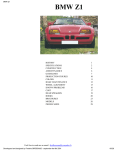
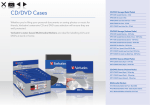
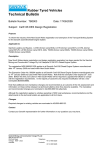

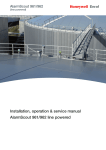
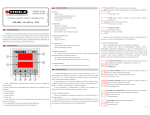


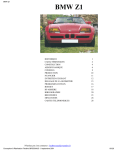
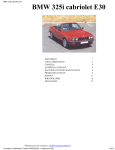
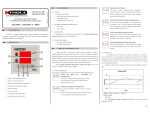


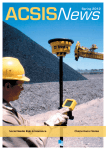
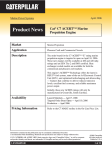
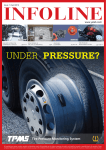
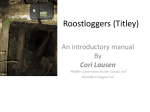
![Roostloggers [Titley] - An Introductory Manual](http://vs1.manualzilla.com/store/data/005649014_1-8c618e497bb2550a491bca85d50a292e-150x150.png)

